The end of the year came, as usual, faster than expected, and in the midst of the fourth wave of the pandemic. Annual planning is thus once again just around the corner for many. For many companies, the coming business year is therefore once again marked by great uncertainty. But hasn't the volatility of the business environment long since become the status quo?
In this Capture blog post, we look at the demands and expectations of annual planning. Read:
- Why many companies are dissatisfied with their budgeting process
- How shorter planning cycles contribute to effective business management
- What distinguishes integrated business planning in project organizations
- Which PPM features make annual planning easier
Annual planning: Between wishful thinking and master plan
Planning is half the battle: But how precise must or can financial planning actually be in order to define and achieve realistic goals? Anyone involved in the annual planning process knows that the expectations and results of all those involved diverge significantly.
The following factors complicate budgeting and portfolio planning:
- The complex framework conditions of business development cannot be fully modeled
- Companies struggle with heterogeneous data sources that can only be used for a central planning view with enormous effort
- The fine-tuning of budgeting, based on content exchange across all business units, is only possible to a limited extent without professional planning tools.
- The presentation of the annual planning does not allow any clear conclusions to be drawn about the strategy and is therefore only suitable to a limited extent as a holistic management tool during the financial year.
Agile budgeting on the long road to becoming the new planning standard
For many years there have been calls for shorter planning cycles to increase the predictive power of annual planning. The advantages of rolling planning are obvious - but companies fear additional costs. These are not confirmed in practice, provided suitable tools are used for agile budgeting and the processes are adapted accordingly.
Tool overview for planning processes
- Excel sheets
Despite great digitalization ambitions along all business processes, Excel sheets are still the dominant work tool for annual planning. Data from different systems and departments are first prepared in individual Excel sheets to be consolidated after several coordination loops. Agile planning is hardly feasible in such a work setup.
- Controlling software
Controlling software can be used to digitize annual planning. However, the application is only suitable for a very specialized group of users and is not relevant for the large stakeholder group for operational use. Excel sheets of individual business units are not replaced by it and holistic, smooth processes are not realized either.
- Projektportfoliomanagement-Lösungen
Project-based organizations that drive their professionalization with project portfolio management solutions such as ServiceNow and Clarity benefit from the “Financial Planning” feature. Among other things, business users can link their strategic planning with operative project key figures within a platform and process them flexibly - the ideal basic prerequisite for meaningful forecasts.
Modern corporate management with project portfolio management
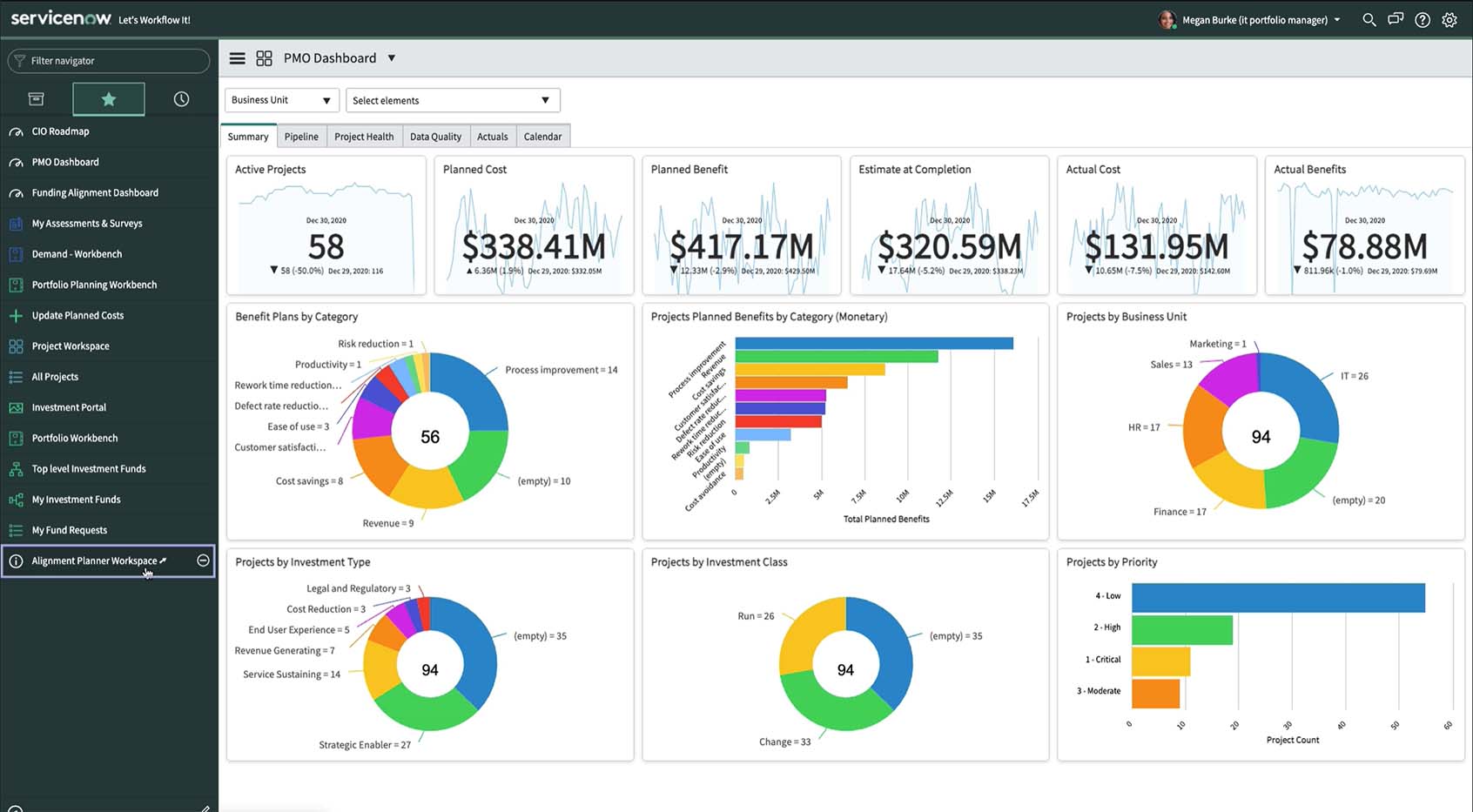
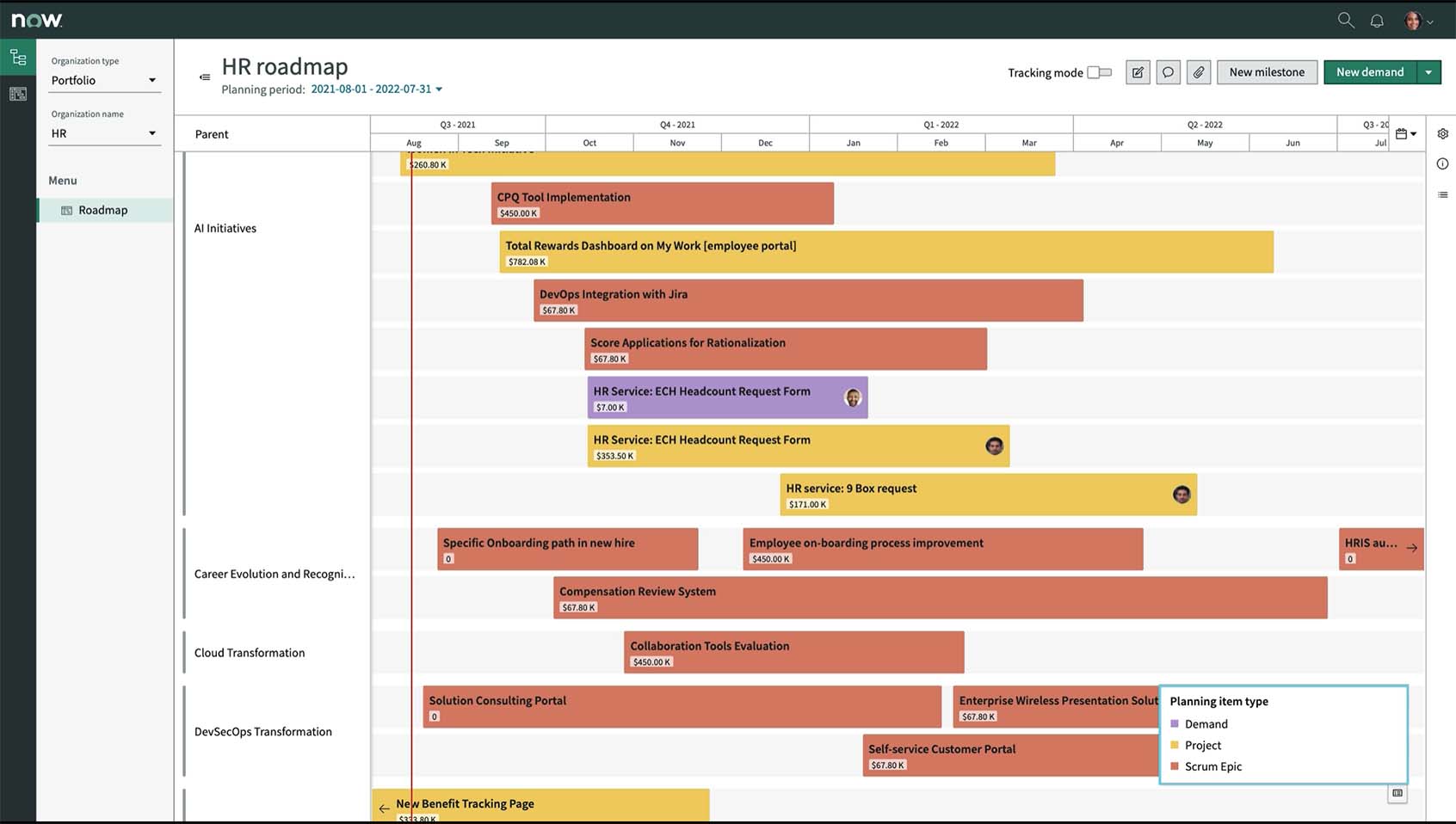
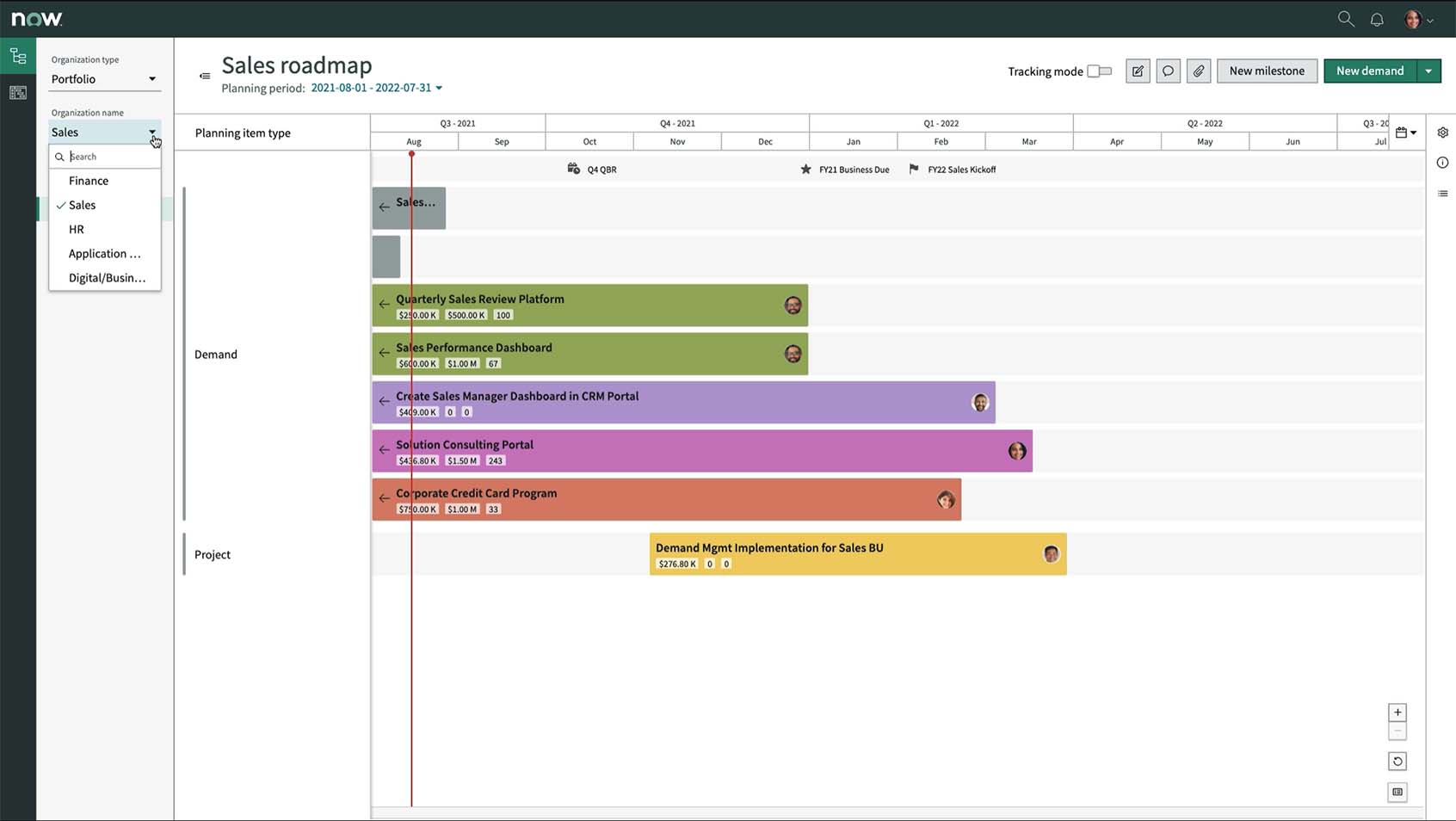
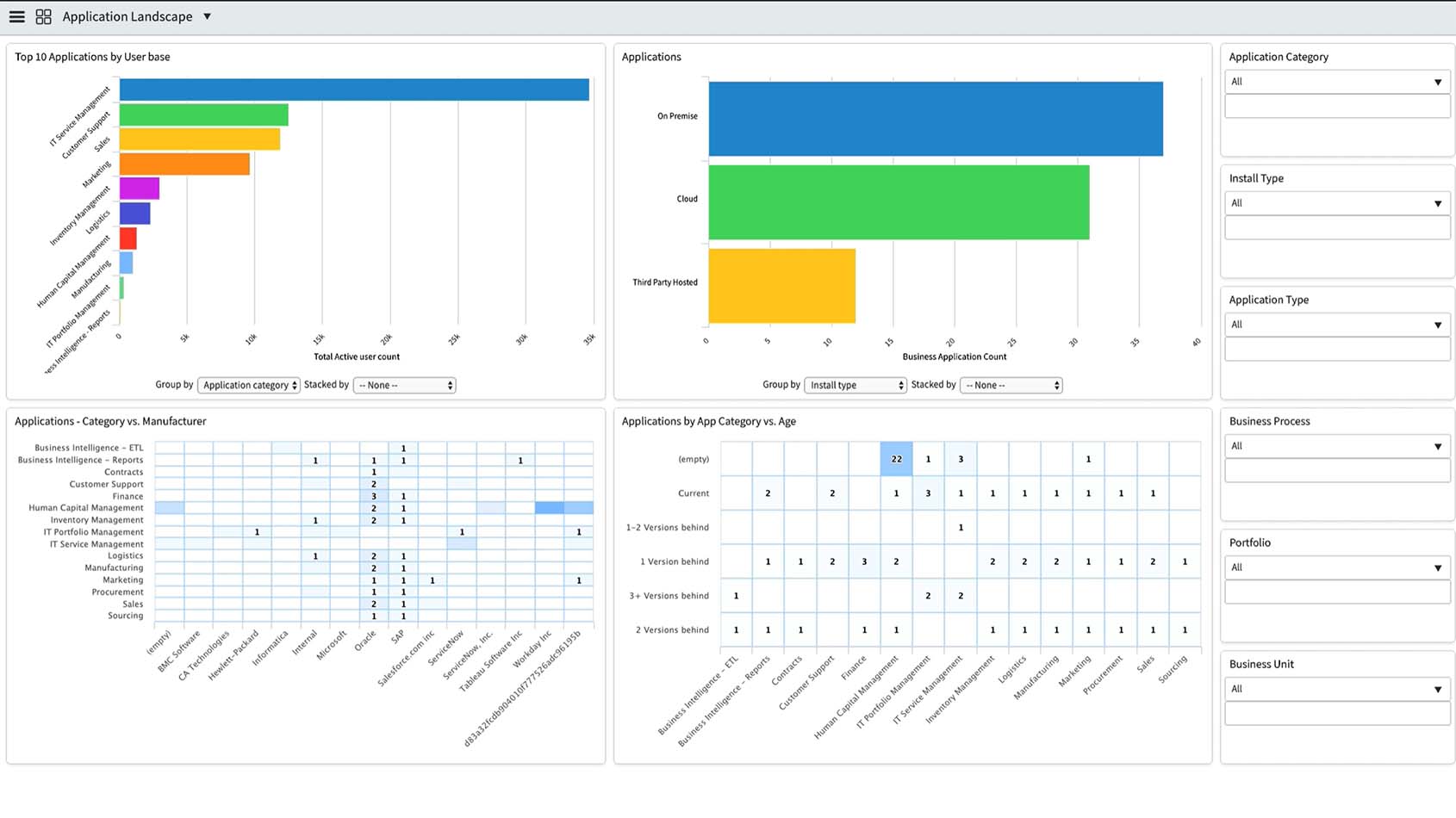
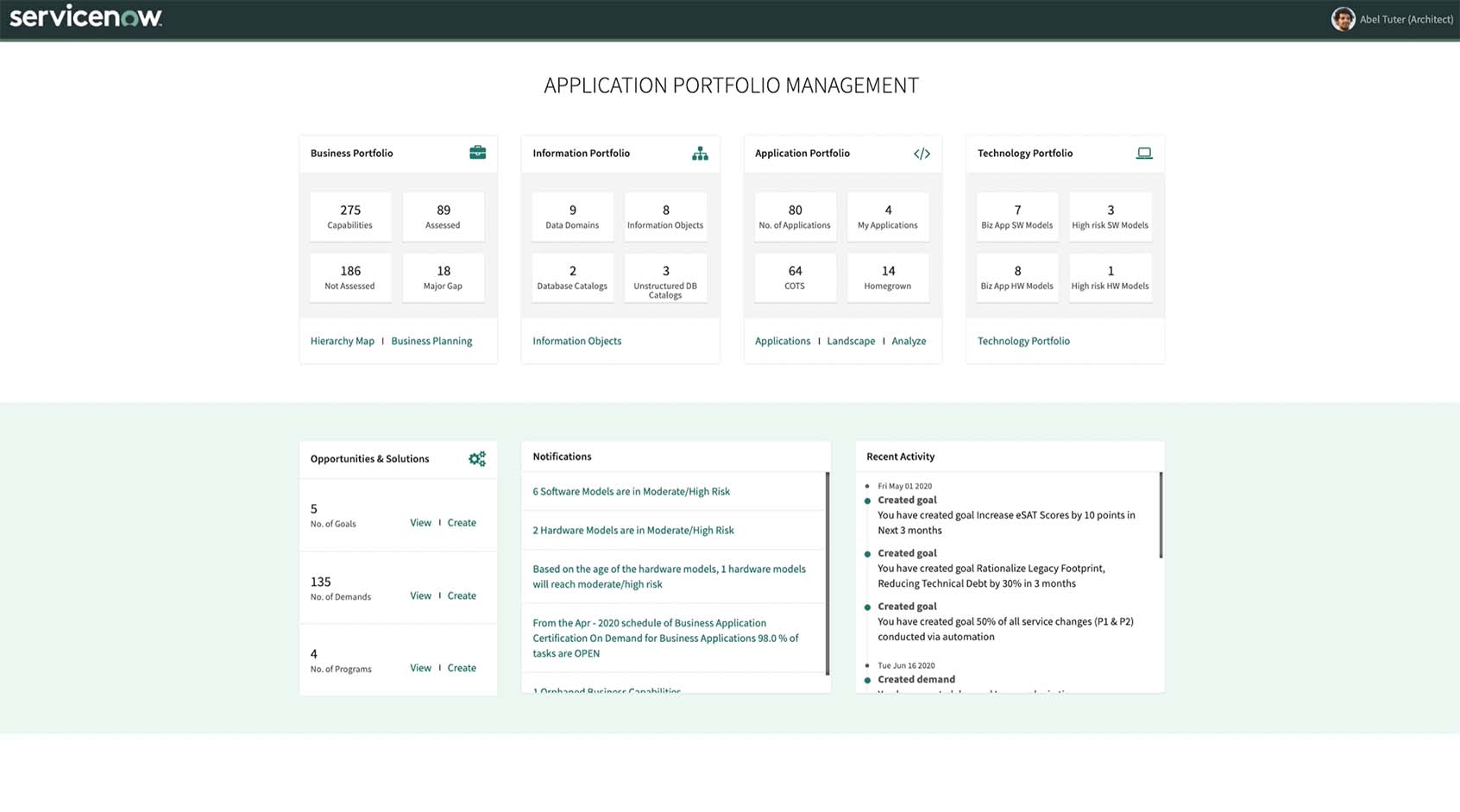
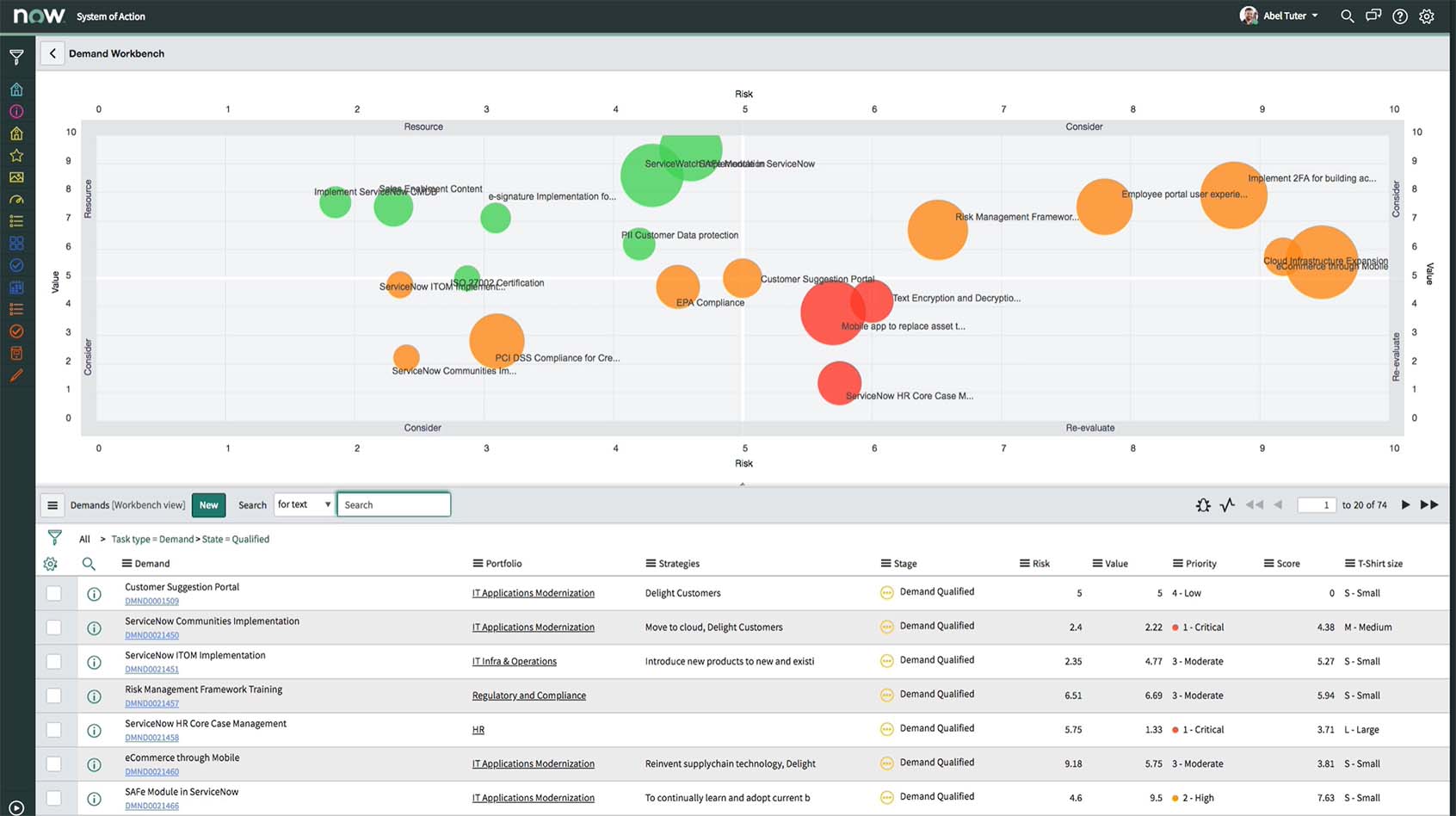
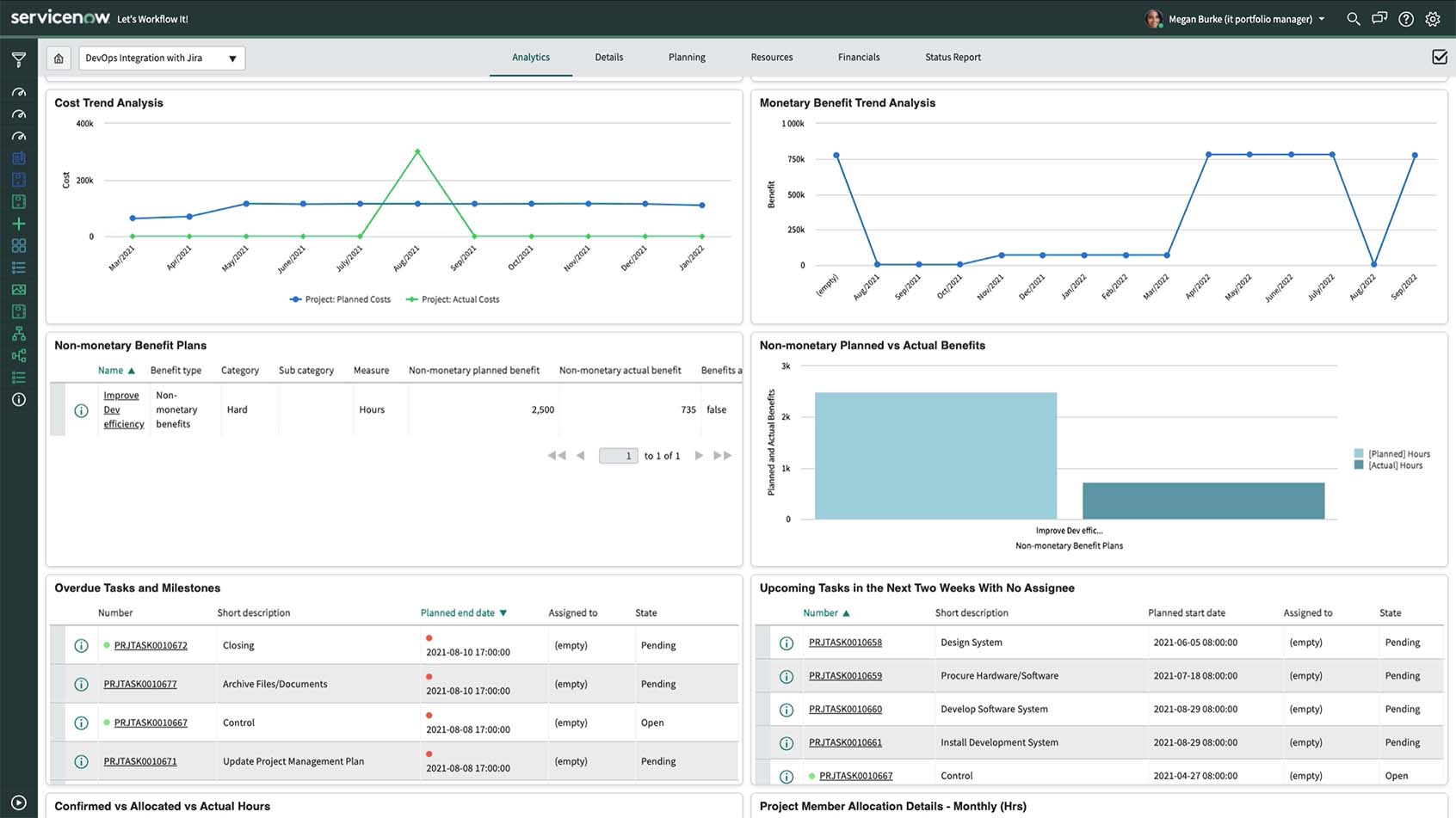
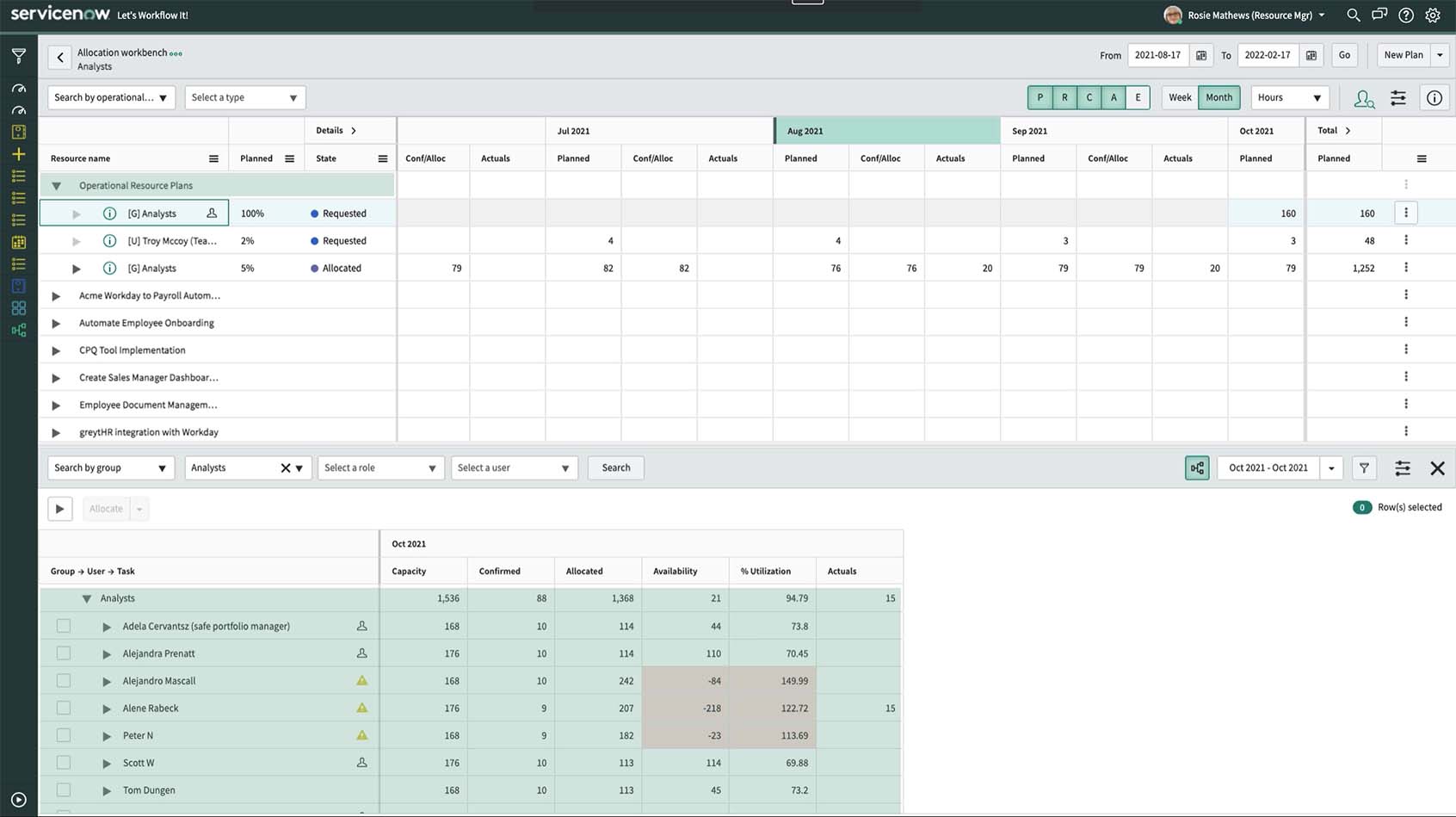
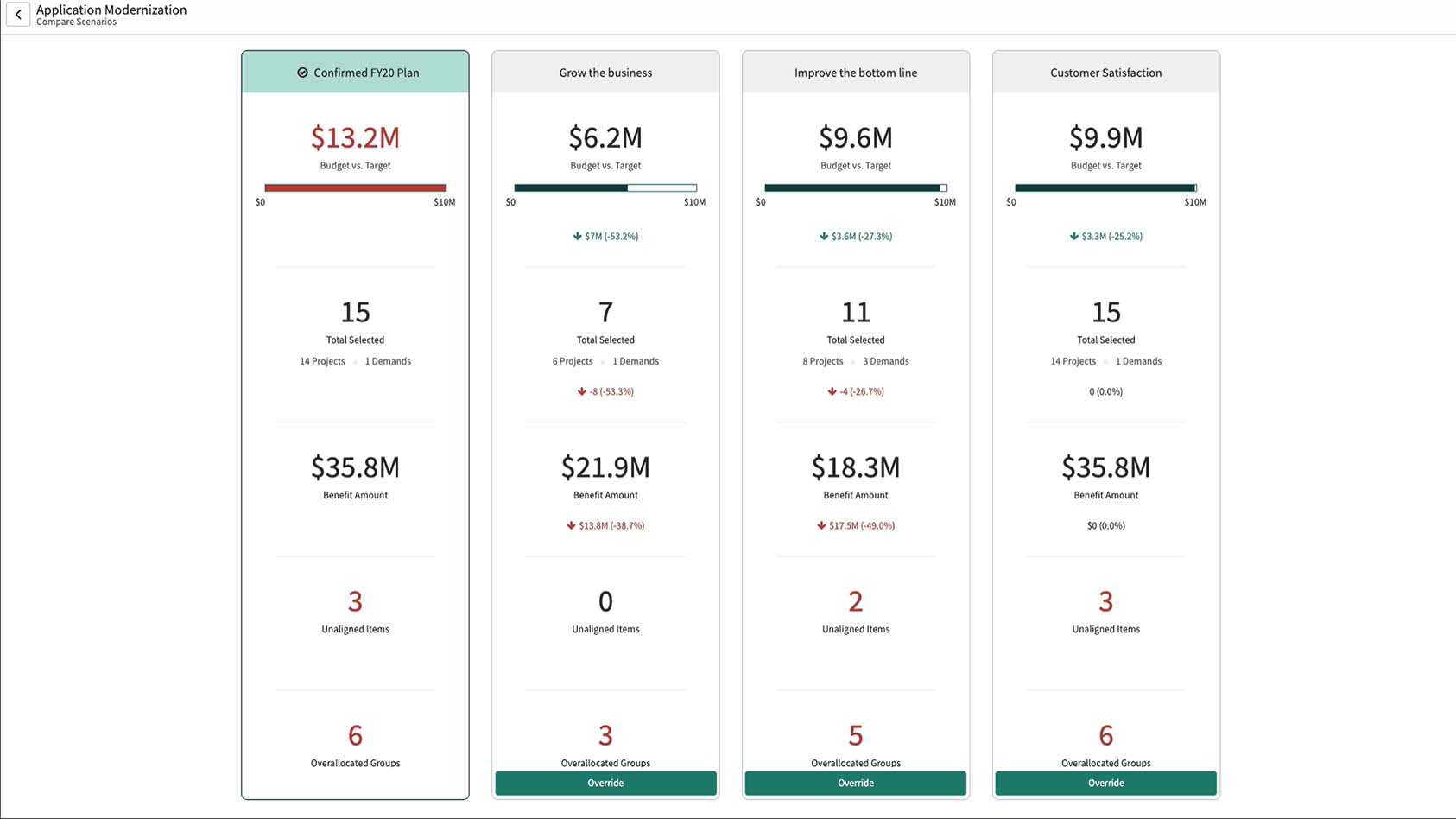
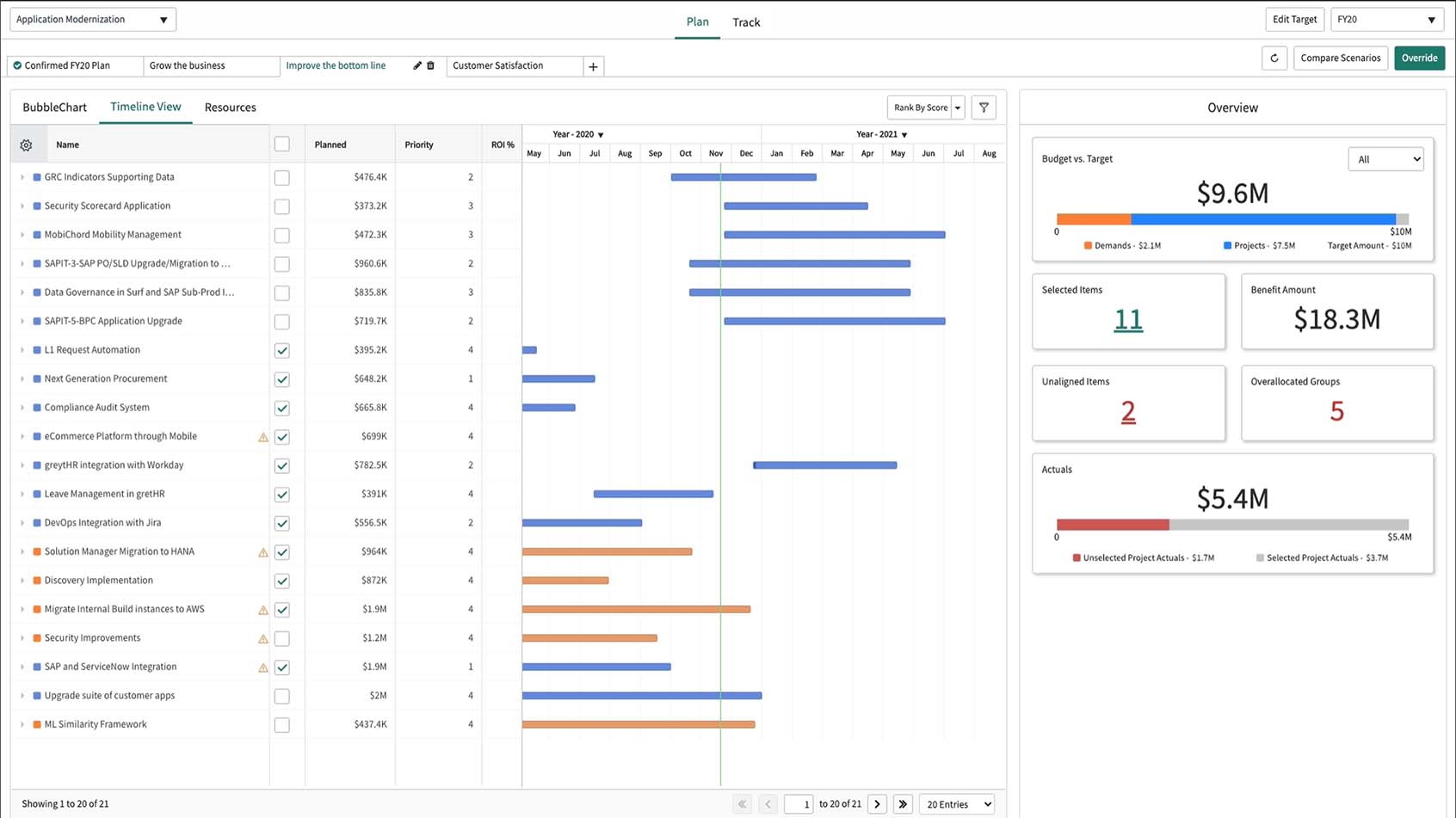
"Control at a glance": Instead of relying exclusively on historical data for planning, PPM solutions can be used to provide updated project data in real-time. Out-of-the-box dashboards make strategic targets comprehensible even without much training and fine-tuning of financial targets is possible at the touch of a button, depending on the actual/target comparison. The integrated business intelligence functionalities offer flexible views of project and business figures: For example, planned figures and results can be subdivided according to business units or projects. The merging of individual projects, as well as newly defined priorities in planning, can also be easily carried out in the PPM solution.
If annual planning is to develop in the direction of a rolling process, then a solid data system is needed that can be worked within an uncomplicated way. An intensively used project portfolio management software offers a good data basis and features that incidentally also promote the overall digitalization of a company.
Capture Demo Sessions: Annual Planning with ServiceNow and Clarity
Do you no longer want to do without precise forecasts? We are happy to support you in the implementation of cross-departmental project controlling and ad hoc reporting for rolling budgeting and effective corporate management. Find out more about the use of "Financial Planning" features of the leading project portfolio management solutions in our Capture Demo Sessions.
Watch Capture Demo Session now
